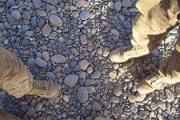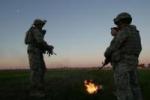
Originally Posted by
William F. Owen

I have to say, I'm really intrigued by this "Design" stuff because it's proto-form "Systemic Operational Design" failed under fire in real operations, in terms of being unable to produce clear and concise orders.
The classic being the one that told an Infantry Brigade Commander to "Render the enemy incoherent within the operational area."
Moreover, what I read about "Design" makes no sense. I've come to the conclusion that planning is the product of skilled people, based on experience. "Understanding the problem" cannot be held to be a separate or discrete process, as in military operations you have to plan for not having understood the problems correctly, because the enemy is trying to make a mess of your plan - and often you have to compensate for your guys making a mess of your plan!!!





 . Grassroots, applied politics (not Political [pseudo-]"Science") is all about influence operations, especially in the artificial hothouse of multi-party elections (we usually have between 3 and 12 candidates in any riding in Canada). I've often thought that the best way to screen for someone who would be a good IO type person would be to ask them about their volunteer grassroots political activity growing up - then screen them out if they have a PoliSci degree
. Grassroots, applied politics (not Political [pseudo-]"Science") is all about influence operations, especially in the artificial hothouse of multi-party elections (we usually have between 3 and 12 candidates in any riding in Canada). I've often thought that the best way to screen for someone who would be a good IO type person would be to ask them about their volunteer grassroots political activity growing up - then screen them out if they have a PoliSci degree  !
!




Bookmarks